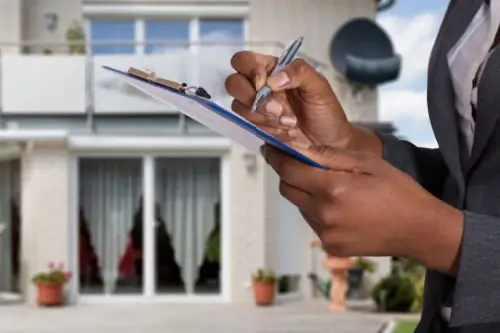

As you begin the process to get a new mortgage, whether for a home purchase or a refinance loan, your lender will order an appraisal for the property to determine how much it is worth. That valuation will play a large part in your overall mortgage plan. It is good to know what things appraisers consider when they determine a value for a property.
-
Location
Location is critical as the home’s value is tied to how close it is to desirable schools, hospitals, and fire and police stations. The crime rate of the neighborhood plays a role as well as does whether the home is on a busy road, what type of houses are around it, and how popular it is for homebuyers. -
Age
The age of the home is important, especially if older plumbing and electrical systems are still in place. Newer homes are not always valued higher than older homes but with age typically comes more maintenance and deterioration. Plus, if the house is so old that its design is extremely outdated, it may be harder to find buyers and consequently worth less. -
Size
The number of bedrooms and total square footage will be a big part of the home’s valuation. A larger or smaller than normal lot size will also affect the price estimation. And 3- to 4-car garage homes typically appraise higher than those with less. -
Exterior
Appraisers look for structurally sound home exteriors. Things like cracked or leaning chimneys, lopsided porches, or an aging roof will lower the appraisers estimate of the property. Siding, garages, and decks will also be inspected for condition. -
Interior
Inside the appraiser is taking note of the specific rooms and spaces. Does it offer any amenities that would set it apart from other homes like a basement, attic, sun room, bonus room, etc? The materials used on floors, windows, and walls will be noted as well. -
Water Damage
The appraiser will pay attention for signs of previous or current water damage in places like the basement, roof, walls, roof, ceilings and around plumbing connections. If there is evidence, it means that there will likely be some hefty repair charges to make it livable coming in the near future, which decreases the current value of the property. -
Pest Damage
Appraisers will also look for any signs of pest infestation, including termites, rodents, and other common nuisances, and lower the property value if they find major evidence of these things. -
Safety Features
Certain types of mortgages, like VA and FHA loans, require appraisers to check for safety features like smoke detectors on every level or sturdy handrails on all staircases. -
Home Improvements
Renovations, especially those done in the kitchen or bathrooms will are likely to increase the appraiser’s estimation. The addition of solar panels, energy-efficient appliances, and other eco-upgrades can also help. -
Comparable Properties
To correctly determine the price of a subject property, appraisers compare recent sales from within a market. Ideally, appraisers find comps within a one-mile radius which are similar in age, size, condition and construction.
Of course, appraisers will take a figurative 30,000-foot view of the property, taking into account the general appearance and condition, whether it seems in good maintained order or if it shows signs of neglect. If you disagree with the appraiser’s valuation of the property, you can sometimes order a second one from a different company, but you’ll have to be prepared to pay for that as well.
Give us a call today if you have any mortgage or real estate related questions. We're here to help you.

